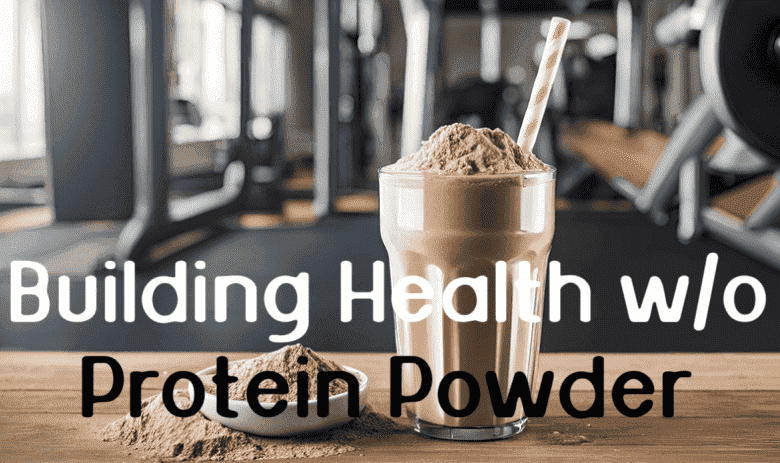Introduction:

In our vibrant, fast-paced world, it’s common to see teenagers striving to meet trendy ideals of quick muscle building and modern fitness standards. Many are often seen gulping down protein shakes before or during gym workouts, sometimes overlooking the hidden risks of protein powder, which can be surprising. Protein is crucial for meeting our body’s daily needs—it’s essential for bone and muscle development, improves hair and nail health, aids in tissue repair, supports digestion by helping produce necessary enzymes, and helps regulate hormones, especially during puberty.
Protein also speeds up recovery after exercise or injury, reduces muscle loss, supports healthy body weight, and helps control hunger. However, it’s worth taking a moment to consider: does this all paint an entirely positive picture for your teen, or are there any potential drawbacks to keep in mind, that may affect your teen in the coming future?
Contents:
- Decoding the Protein Powder
- Keep Your Teens Vigilant About These 5 Hidden Risks of Protein Powder
- Beware! Your Teen Could Be Vulnerable (See These Examples)
- So, Is Skipping Protein Powder a Wise Move for Your Teen (Summing Up)
Decoding the Protein Powder:
Protein powders are manufactured using plant-based ingredients, milk, eggs, or meat, and are consumed for various health-related purposes, such as muscle gain or weight loss. Plant protein sources include soybeans, peas, brown rice, hemp, flaxseeds, and chia seeds, while whey protein is derived from eggs, milk, and meat.
In their raw form, protein powders may not have a pleasant taste and can have an earthy or nutty flavor. To enhance their palatability, additional ingredients such as sugar, minerals, and artificial flavors may be added. With the increasing popularity of protein powder, many brands have emerged, each claiming to provide a higher protein content per scoop compared to naturally protein-rich foods.
Keep Your Teens Vigilant About These 5 Hidden Risks of Protein Powder:
After examining the benefits of protein powder in the introduction, let’s now turn our attention to its potential drawbacks.
1. Higher in Calories:
- While protein powder becomes more palatable with the addition of sugar and flavors, it’s important to note that these additives also contribute to an increased calorie intake per scoop. Consuming excessive amounts of protein powder for long can lead to an imbalance in blood sugar levels
2. Irritable Bowel Movement:
- Individuals who are more susceptible to milk allergies or have lactose intolerance may experience impacts on their bowel movements when consuming protein powder. This is because many protein powders are derived from milk-based sources, such as whey protein
3. Potential Risks for Body Organ Disfunction:
- According to a typical healthy body chart, an individual should aim to consume approximately 10% to 30% of their daily calorie intake from protein. For instance, if someone requires 2,000 calories per day, their protein intake should range from 200 to 600 calories, which roughly translates to 50 to 150 grams of protein per day, depending on the specific needs of their body
- It is crucial to note that exceeding the recommended protein intake limits can have adverse effects on critical organs like the kidneys and liver. These organs may experience added strain from processing excessive protein
4. The Elevated Blood Pressure and Hormonal Disruption:
- The consumption of protein powder has been associated with promoting faster body recovery and providing an extra boost during workout sessions. However, it’s important to recognize that this can put additional strain on the body, potentially impacting healthy blood pressure levels
- The heightened physical exertion caused by protein powder may lead to increased adrenaline hormone levels and heart rate. These factors, if consistently elevated, can contribute to an increased risk of coronary or carotid artery failure
5. Presence of Toxic Elements and Steroids:
- It is important to be aware that the presence of toxic elements and steroids in protein powder can be a significant concern. Due to the lack of stringent guidelines and regulatory standards, certain manufacturers may include toxic heavy metals such as mercury, arsenic, lead, and cadmium, as well as substances like bisphenol (commonly used in plastic production), pesticides, and even steroids, without proper disclosure
- The ingestion of these harmful substances can have detrimental effects on heart health and may increase the risk of developing cancer and other health complications
Beware! Your Teen Could Be Vulnerable:
Undoubtedly, it is crucial to acknowledge that the consumption of protein powder, particularly when combined with intense workout sessions, without proper guidance, has been identified as a potential cause of health hazards in recent years. Tragically, there have been instances of fit-looking individuals experiencing fatalities during their workout sessions, often due to heart failure.
Notable Cases:
- Cases such as the deaths of David Goldberg, former CEO of SurveyMonkey, in 2015, Raju Shrivastava, an Indian TV artist, in 2022, and most recently Jo Lindner, a German fitness influencer, who was popularly known as Joesthetics passed away at the age of 30 in 2023 serve as distressing reminders of the risks involved
These incidents highlight the importance of approaching fitness and protein powder consumption responsibly, seeking professional guidance, and maintaining a balanced and safe approach to exercise. Prioritizing overall health and well-being is important to mitigate the potential risks associated with intense workouts and protein powder usage.
So, Is Skipping Protein Powder a Wise Move for Your Teen?
The answer to whether we should skip protein powder depends on various factors, but in most instances, the answer is affirmative. Consuming protein in its natural form is beneficial for our well-being, making options such as pulses, lentils, milk, yogurt, curd, cheese, dry fruits, meat, fish, and eggs preferable.
However, it is worth noting that the use of protein powder can be advantageous for individuals with specific health conditions such as burns, surgical wounds, and a weakened appetite, provided it is done under the guidance of a medical professional. In such critical cases, promoting the supervised use of protein powder becomes relevant.
Courtesy Image: Canva

